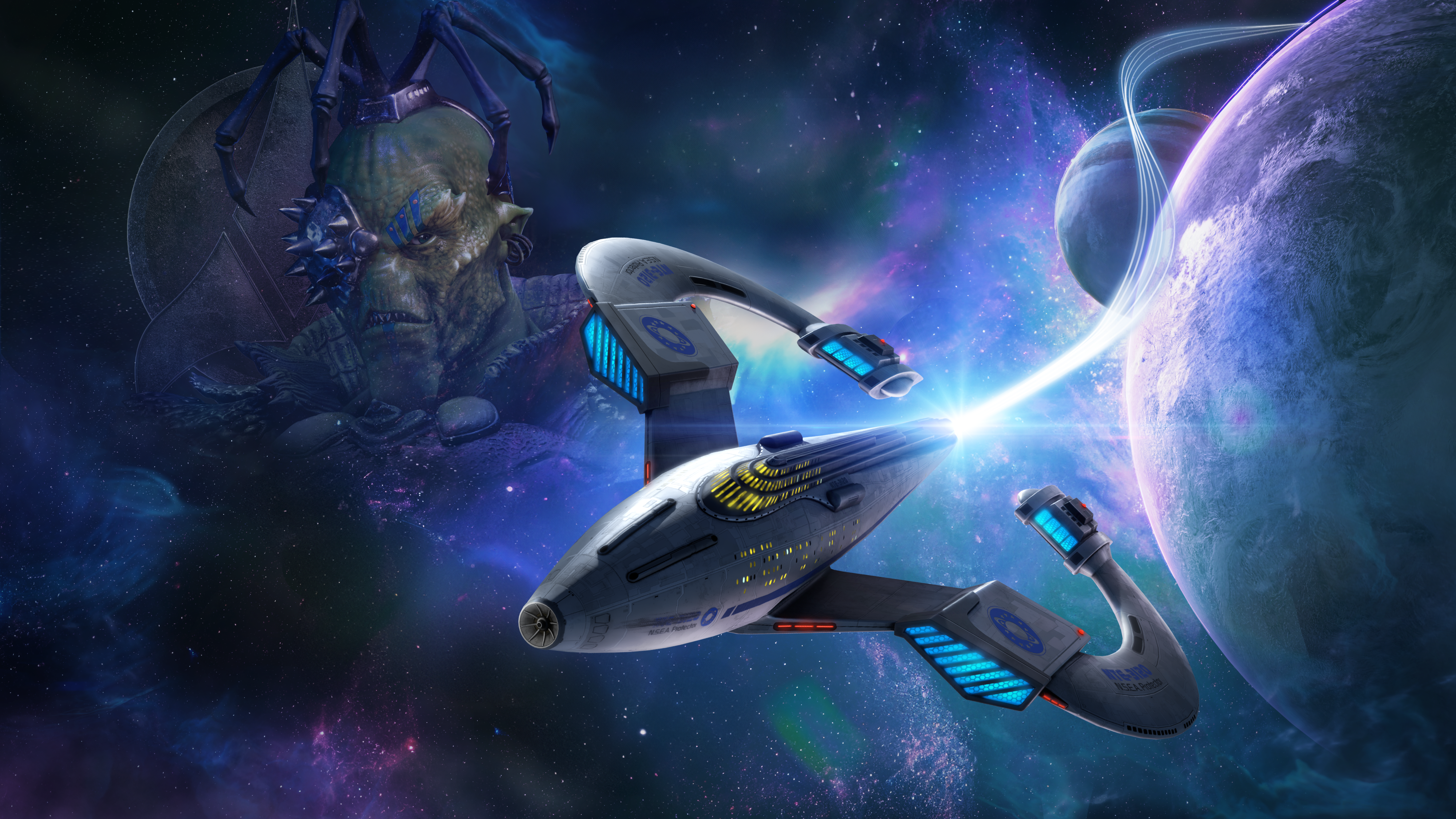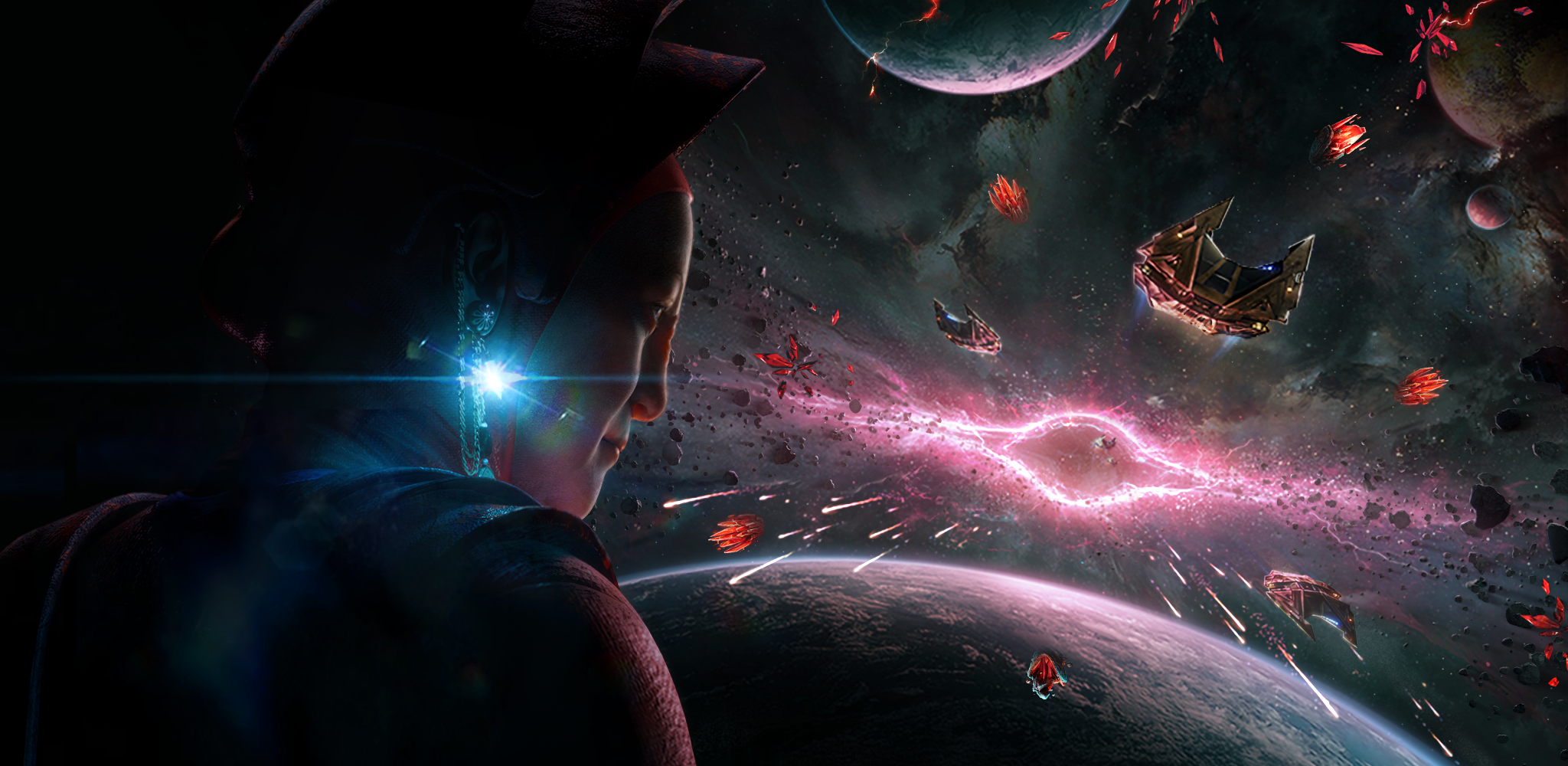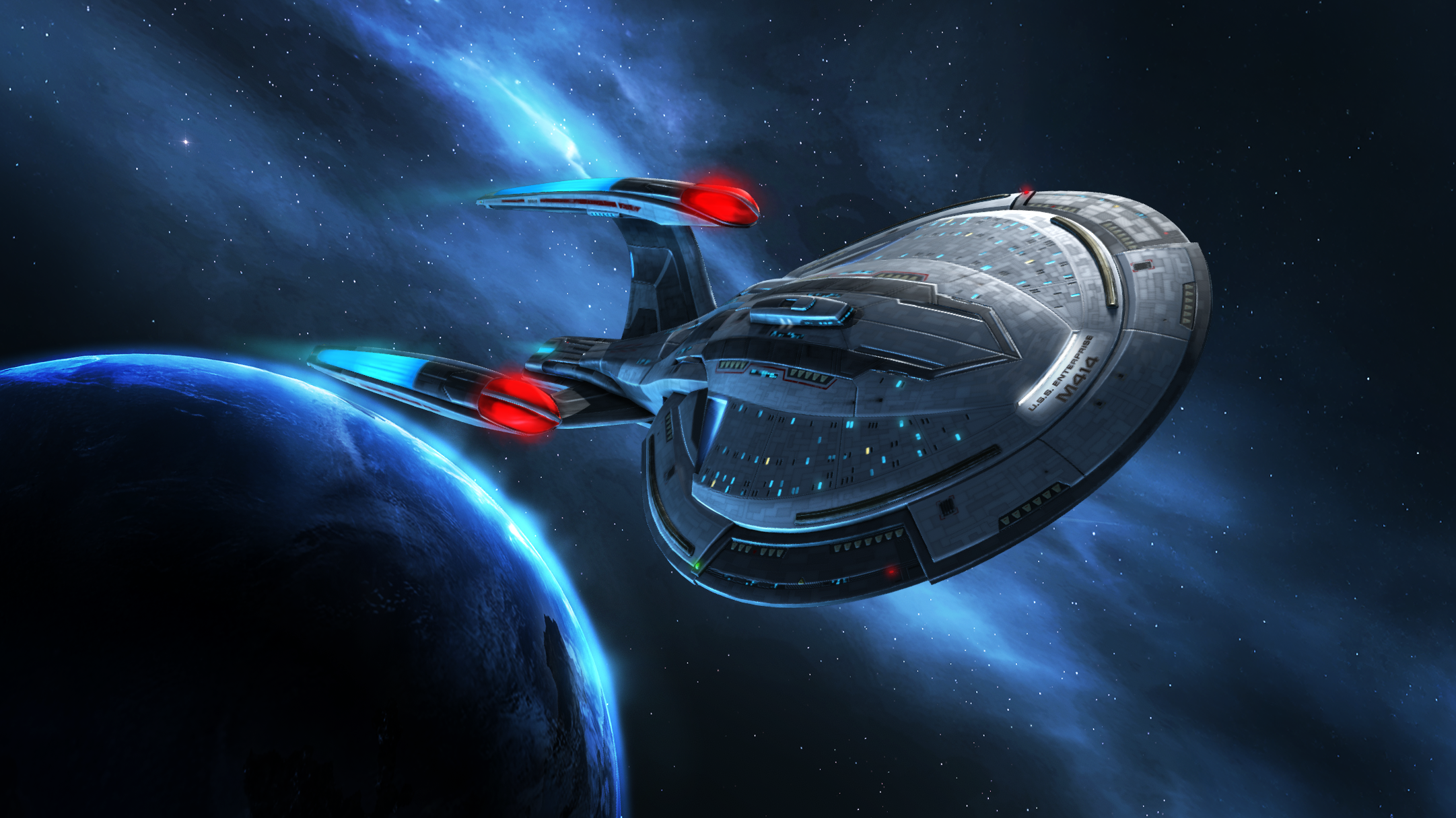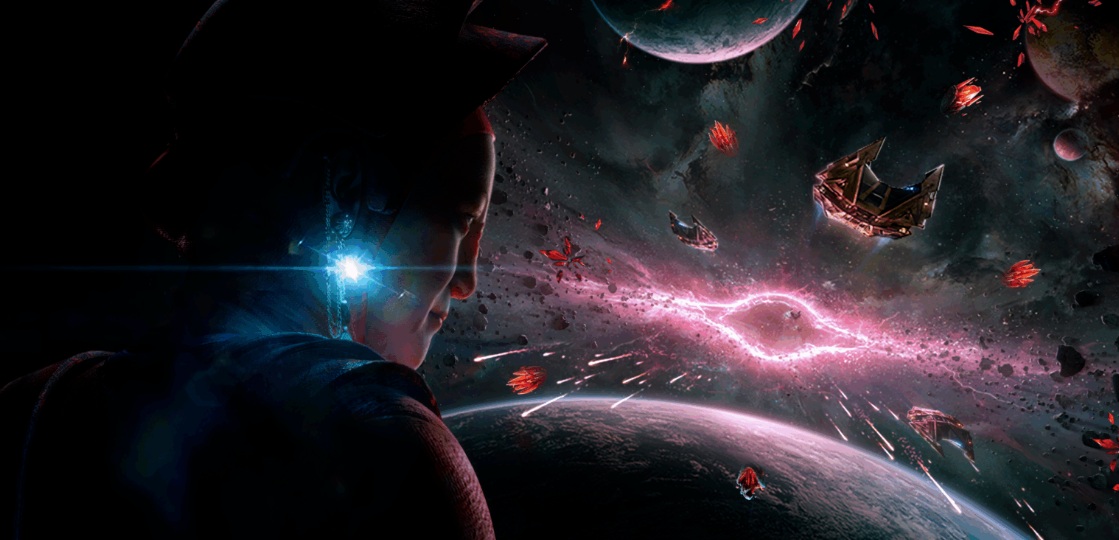25 Years of Love
In 1999, “Galaxy Quest” burst onto the scene as a unique blend of science fiction, comedy, and heartfelt tribute. Directed by Dean Parisot and starring Tim Allen, Sigourney Weaver, and Alan Rickman, this cult classic has resonated with both sci-fi enthusiasts and casual viewers. At its core, “Galaxy Quest” is an affectionate parody of “Star Trek,” but it also stands as a testament to the enduring legacy of the beloved franchise and its impact on popular culture. This year its celebrating its 25th year since premier, and what better way to celebrate than to bring it to Star Trek Fleet Command and the fandom it was created for.
Galaxy Quest Premise
“Galaxy Quest” centers around the washed-up cast of a defunct sci-fi TV series of the same name, reminiscent of the original “Star Trek” series. The actors, now relegated to attending conventions and making appearances in character, are suddenly thrust into a real intergalactic conflict when they are mistaken for actual space heroes by a group of aliens. These extraterrestrial beings, known as the Thermians, have modeled their entire civilization on the show’s episodes, believing them to be historical documents.
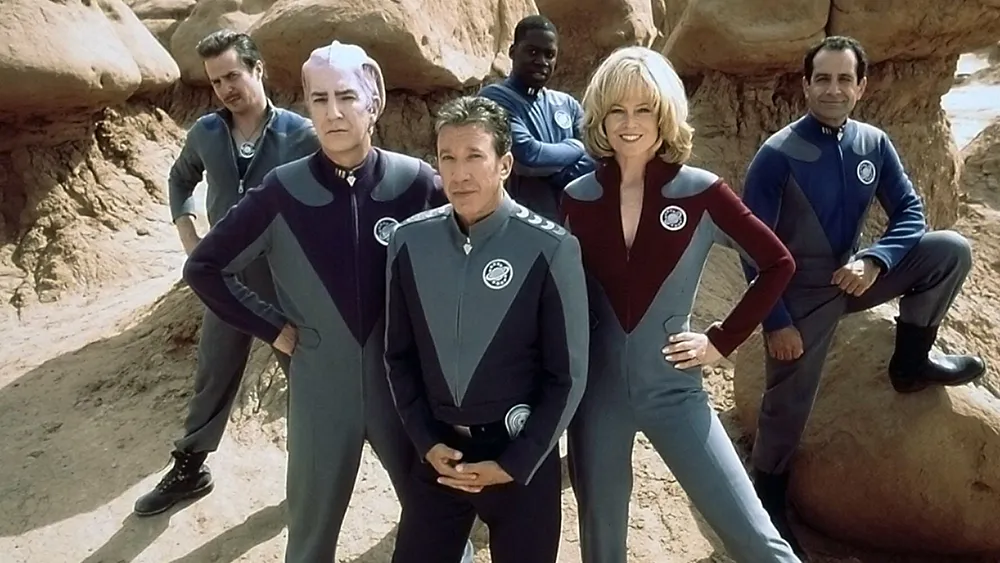
This clever premise mirrors the relationship between “Star Trek” and its fans. Just as the Thermians idolize the “Galaxy Quest” crew, Trekkies have long celebrated “Star Trek” with a fervor that has spawned conventions, fan fiction, and a deep sense of community. The film captures this dynamic with humor and warmth, highlighting the sometimes blurry line between fiction and reality.
Galaxy Quest Shows Nods to Iconic Roles
The characters in “Galaxy Quest” are clear nods to the iconic figures of “Star Trek.” Tim Allen’s Jason Nesmith, who plays Commander Peter Quincy Taggart, is a parody of William Shatner’s Captain James T. Kirk. Sigourney Weaver’s Gwen DeMarco, the show’s communications officer, channels elements of both Uhura and the stereotypical damsel in distress, poking fun at the often limited roles for women in early sci-fi. Alan Rickman’s Sir Alexander Dane, who portrays the alien Dr. Lazarus, is a nod to Leonard Nimoy’s Spock, complete with the actor’s struggle to be recognized beyond his typecast role.
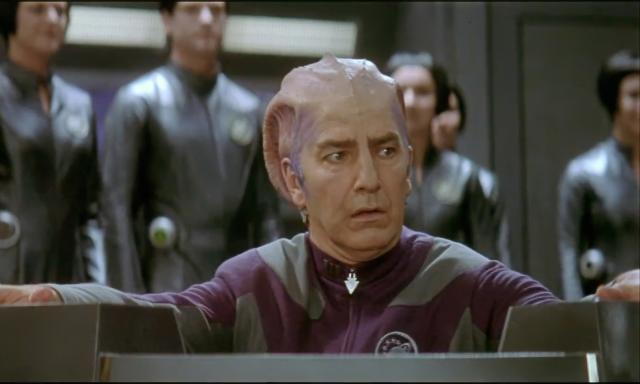
These parallels are more than mere mimicry; they serve as a loving critique of the “Star Trek” archetypes and the actors’ experiences. The film delves into the cast’s frustrations and aspirations, providing a deeper understanding of the challenges faced by actors who become synonymous with their iconic roles.
Celebrating Fandom
“Galaxy Quest” is more than just a parody; it explores themes of redemption, teamwork, and the power of belief. The washed-up actors find new purpose and redemption as they rise to the occasion, transforming from self-absorbed has-beens into real-life heroes. This journey resonates with the “Star Trek” ethos of self-improvement, unity, and exploration.
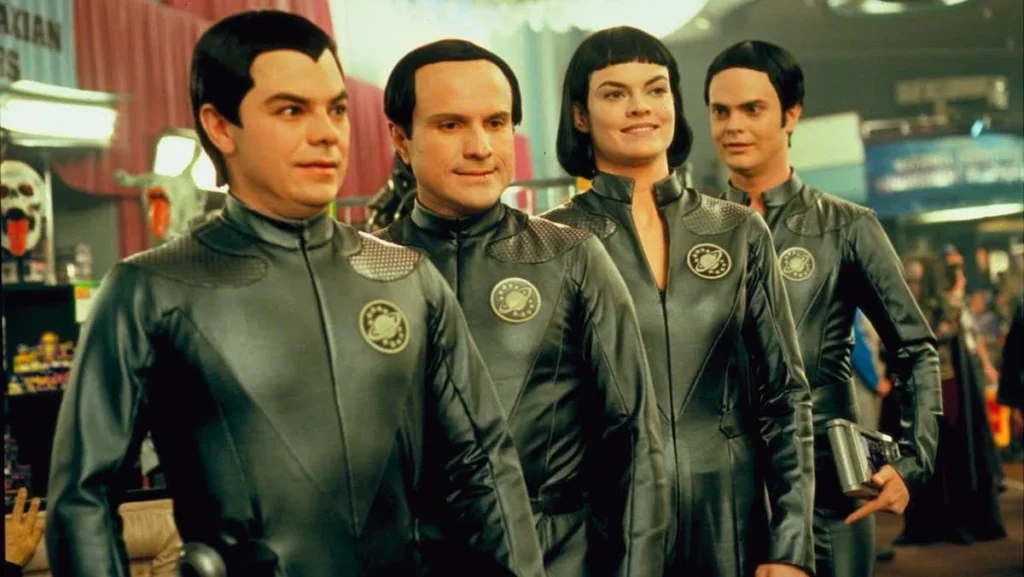
Moreover, the film celebrates fandom in a way that few movies do. It acknowledges the sometimes obsessive nature of fans but also highlights their genuine love and dedication. The Thermians’ unwavering belief in the “Galaxy Quest” crew reflects the positive impact that shows like “Star Trek” can have on their audiences, inspiring hope, creativity, and a sense of belonging.
A true tribute to Star Trek
In the end, “Galaxy Quest” is a testament to the power of storytelling and the lasting impact of “Star Trek.” It reminds us that even in a world of make-believe, there can be real heroism, camaraderie, and hope. By blending satire with sincere appreciation, “Galaxy Quest” honors the legacy of “Star Trek” while carving out its unique niche in the cosmos of science fiction.

Whether you’re a die-hard Trekkie or a casual viewer, “Galaxy Quest” is all about celebrating the fans and our team is looking forward to bringing it in game for more fun and challenges. There is going to be a lot to this month, but as the film’s tagline says, “Never give up, never surrender!”
LLAP
-The Star Trek Team
